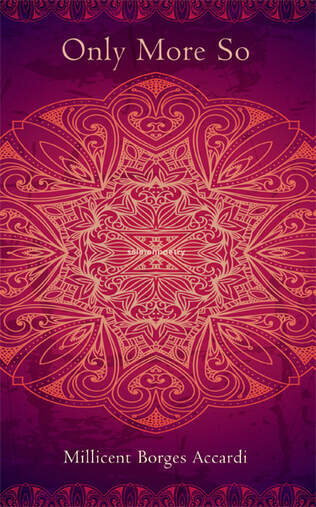- Home
- About
- Submit
- Features
- Interviews
- Book Reviews
- Previous Issues
- Blog
- Contact
-
Issue #25 Spring 2023
- Issue #25 Art Spring 2023 >
-
Issue #25 Poetry Spring 2023
>
- Emma Bolden Spring 2023
- Ronda Piszk Broatch Spring 2023
- M. Cynthia Cheung Spring 2023
- Flower Conroy Spring 2023
- Jill Crammond Spring 2023
- Sandra Crouch Spring 2023
- Satya Dash Spring 2023
- Rita Feinstein Spring 2023
- Dan Fliegel Spring 2023
- Lisa Higgs Spring 2023
- Dennis Hinrichsen Spring 2023
- Mara Jebsen Spring 2023
- Abriana Jetté Spring 2023
- Letitia Jiju Spring 2023
- E.W.I. Johnson Spring 2023
- Ashley Kunsa Spring 2023
- Susanna Lang Spring 2023
- James Fujinami Moore Spring 2023
- Matthew Murrey Spring 2023
- Pablo Otavalo Spring 2023
- Heather Qin Spring 2023
- Wesley Sexton Spring 2023
- Ashish Singh Spring 2023
- Sara Sowers-Wills Spring 2023
- Sydney Vogl Spring 2023
- Elinor Ann Walker Spring 2023
- Andrew Wells Spring 2023
- Erin Wilson Spring 2023
- Marina Hope Wilson Spring 2023
- David Wojciechowski Spring 2023
- Jules Wood Spring 2023
- Ellen Zhang Spring 2023
- BJ Zhou Spring 2023
- Jane Zwart Spring 2023
- Issue #25 Fiction Spring 2023 >
- Issue #25 Nonfiction Spring 2023 >
-
Issue #26 Fall 2023
- Issue #26 Art Fall 2023 >
-
Issue #26 Poetry Fall 2023
>
- Fasasi Abdulrosheed Oladipupo Fall 2023
- Christopher Ankney Fall 2023
- Magdalena Arias Vásquez Fall 2023
- John Peter Beck Fall 2023
- Mihir Bellamkonda Fall 2023
- Benjamin Bellas Fall 2023
- Michael Carson Fall 2023
- Kevin Clark Fall 2023
- Aaron Coleman Fall 2023
- Mark DeCarteret Fall 2023
- Denise Duhamel Fall 2023
- Brandel France de Bravo Fall 2023
- Tina Gross Fall 2023
- Amorak Huey Fall 2023
- James Kimbrell Fall 2023
- Casey Knott Fall 2023
- Stephen Lackaye Fall 2023
- Cynthia Manick Fall 2023
- Savannah McClendon Fall 2023
- John Muellner Fall 2023
- Mollie O’Leary Fall 2023
- Joel Peckham Fall 2023
- Natalia Prusinska Fall 2023
- henry 7. reneau, jr. Fall 2023
- Esther Sadoff Fall 2023
- Hilary Sallick Fall 2023
- Kelly R. Samuels Fall 2023
- Issue #26 Fiction Fall 2023 >
-
Issue #27 Spring 2024
- Issue #27 Art Spring 2024 >
-
Issue #27 Poetry Spring 2024
>
- Terry Belew Spring 2024
- Dustin Brookshire & Diamond Forde Spring 2024 Spring 2024
- Dustin Brookshire & Caridad Moro-Gronlier Spring 2024 Spring 2024
- Charlie Coleman Spring 2024
- Isabelle Doyle Spring 2024
- Reyzl Grace Spring 2024
- Kelly Gray Spring 2024
- Meredith Herndon Spring 2024
- Mina Khan Spring 2024
- Anoushka Kumar Spring 2024
- Cate Latimer Spring 2024
- BEE LB Spring 2024
- Grace Marie Liu Spring 2024
- Sarah Mills Spring 2024
- Faisal Mohyuddin 2024
- Marcus Myers Spring 2024
- Mike Puican Spring 2024
- Sarah Sorensen Spring 2024
- Lynne Thompson Spring 2024
- Natalie Tombasco Spring 2024
- Alexandra van de Kamp Spring 2024
- Donna Vorreyer Spring 2024
- Fiction #27 Spring 2024 >
- Nonfiction #27 Spring 2024 >
Book Review: Only More So by Millicent Borges Accardi
Millicent Borges Accardi is the author of Only More So (Salmon Poetry, 2016), Woman on a Shaky Bridge (Finishing Line Press, 2010), and Injuring Eternity (World Nouveau, 2010). Accardi is recipient of fellowships from the National Endowment for the Arts (NEA), Fullbright, CantoMundo, Creative Capacity, the California Arts Council, and the Barbara Deming Foundation (Money for Women). Accardi has been resident at Yaddo, Milkwood in Cesky Krumlov, Fundación Valparaíso in Spain, Jentel, and Vermont Studio Center. She holds degrees in English literature and writing from California State University, Long Beach (CSULB) and the University of Southern California (USC).
|
Review
|
A Review of Millicent Borges Accardi's Only More So
Millicent Borges Accardi’s Only More So is a composition of lyrical poetry. Accardi’s poetic voice connects the collective consciousness of Portuguese women, retelling a history of violence, ethnic cleansing, and trauma. In revisiting a history of war, Accardi’s poems capture the resistance and survival of women, determining a critical exploration of a history that is passed down generations, which is still being processed. In “Ciscenje Prostora (Ethnic Cleansing),” the poem speaks to women who experience the traumatic consequences of war. Accardi displays a soldier’s abuse of power when he sexually assaults the woman in the poem: She knows not to stare back In relaying the assault, the poem amplifies the woman’s “whisper,” detailing a vicious experience as to say, if society resolves to produce violent men, then that same society deserves to share the uncomfortable moment in observing the retelling of the woman’s rape. Furthermore, even though the speaker is absent in the actions of the poem, she appears as “me,” pointing to a collective consciousness, where the crime against the main woman doesn’t only affect her as an individual, but the brutality becomes consequential to other women facing the same scenario. The speaker’s role as “me” results in a reality where the following generations inherit the trauma their ancestors’ experience. The inherent violence in the word “Ciscenje Prostora (Ethnic Cleansing)” defines casualty as the mission: Even little sounds, like birds overhead, / encourage him to go on, to spit, to breathe / three generations of her surrender into his lungs." Although the soldier completes his war mission by destabilizing a woman’s life, Accardi’s poem recognizes the humanity of a survivor’s story: “she thinks not of peace, but of surviving / the winter, of outlasting the enemy, of winning.” Even though the poem provides a voice for the woman, the situation is not resolved, but Accardi emphasizes the significance in illustrating where generational trauma begins as well as where the conversation on identity leads. “Ciscenje Prostora (Ethnic Cleansing)” is by no means an undoing, but a new-beginning, albeit a savage start into the territory of a forced cultural dissemination.
Moving into Accardi’s ekphrastic poem, based on Frida Kahlo’s oil painting with the eponymous title “What the Water Gives Me,” Accardi exercises a rhetorical interpretation of Kahlo’s work, offering both a new imagination and meaning to Kahlo’s art. For instance, the speaker makes herself the subject of the piece: “at first it gives heat, burning red angels / on my ankles when the steam from the bath / rushes in.” The subjective approach allows the speaker to adopt the painting’s surrealist metaphors, to speak them literally, indicating a connection between women and this particular experience: […] My toes kick at the The bath’s water in Kahlo’s “What the Water Gives Me” is a mirror, reflecting memories that cause distress. Accardi’s poem extends the significance of the bath’s water, designating the metaphor as a portal to shared grievances. The surrealist elements point to a juxtaposition between comfort and pain, where both Kahlo and Accardi’s poem show the image of a body attempting to rest in the bath, but the “burning red angles” and “miscarried faces” confront consolation. “What the Water Gives Me” bares agony through a survivor’s perspective, demonstrating a resilience between two separate stories that intertwine at shared experiences and metaphors.
Both “Ciscenje Prostora (Ethnic Cleansing)” and “What the Water Gives Me” explore the workings of a collective consciousness, which examine the development of personhood from a direct result of shared history, experience, and even metaphor. Only More So is a collection of lyrical poems that explore the sociological implication of womanhood, culture, and an individual identity reflective to the environment of that individual’s society, presenting emotion and understanding as a crucial, humanistic quality of a person’s reality. Accardi’s poems discuss a variety of conflict that results in generational trauma. Millicent Borges Accardi’s Only More So extends the influence of her poetic voice to share resilience against erasure, surviving even when her poems share a close relationship to loss. |
|
Miguel is the Asst. Managing Editor and Book Review Editor for Jet Fuel Review. As an editor, one of his main concerns is giving a space to marginalized voices, centralizing on narratives often ignored. He loves reading radical, unapologetic writers, who explore the emotional and intellectual stresses within political identities and systemic realities. His own writings can be found in OUT / CAST: A Journal of Queer Midwestern Writing and Art, The Rising Phoenix Review, and Rogue Agent. He writes for the Jet Fuel Review blog in Not Your Binary: A QTPOC Reading Column.
|
- Home
- About
- Submit
- Features
- Interviews
- Book Reviews
- Previous Issues
- Blog
- Contact
-
Issue #25 Spring 2023
- Issue #25 Art Spring 2023 >
-
Issue #25 Poetry Spring 2023
>
- Emma Bolden Spring 2023
- Ronda Piszk Broatch Spring 2023
- M. Cynthia Cheung Spring 2023
- Flower Conroy Spring 2023
- Jill Crammond Spring 2023
- Sandra Crouch Spring 2023
- Satya Dash Spring 2023
- Rita Feinstein Spring 2023
- Dan Fliegel Spring 2023
- Lisa Higgs Spring 2023
- Dennis Hinrichsen Spring 2023
- Mara Jebsen Spring 2023
- Abriana Jetté Spring 2023
- Letitia Jiju Spring 2023
- E.W.I. Johnson Spring 2023
- Ashley Kunsa Spring 2023
- Susanna Lang Spring 2023
- James Fujinami Moore Spring 2023
- Matthew Murrey Spring 2023
- Pablo Otavalo Spring 2023
- Heather Qin Spring 2023
- Wesley Sexton Spring 2023
- Ashish Singh Spring 2023
- Sara Sowers-Wills Spring 2023
- Sydney Vogl Spring 2023
- Elinor Ann Walker Spring 2023
- Andrew Wells Spring 2023
- Erin Wilson Spring 2023
- Marina Hope Wilson Spring 2023
- David Wojciechowski Spring 2023
- Jules Wood Spring 2023
- Ellen Zhang Spring 2023
- BJ Zhou Spring 2023
- Jane Zwart Spring 2023
- Issue #25 Fiction Spring 2023 >
- Issue #25 Nonfiction Spring 2023 >
-
Issue #26 Fall 2023
- Issue #26 Art Fall 2023 >
-
Issue #26 Poetry Fall 2023
>
- Fasasi Abdulrosheed Oladipupo Fall 2023
- Christopher Ankney Fall 2023
- Magdalena Arias Vásquez Fall 2023
- John Peter Beck Fall 2023
- Mihir Bellamkonda Fall 2023
- Benjamin Bellas Fall 2023
- Michael Carson Fall 2023
- Kevin Clark Fall 2023
- Aaron Coleman Fall 2023
- Mark DeCarteret Fall 2023
- Denise Duhamel Fall 2023
- Brandel France de Bravo Fall 2023
- Tina Gross Fall 2023
- Amorak Huey Fall 2023
- James Kimbrell Fall 2023
- Casey Knott Fall 2023
- Stephen Lackaye Fall 2023
- Cynthia Manick Fall 2023
- Savannah McClendon Fall 2023
- John Muellner Fall 2023
- Mollie O’Leary Fall 2023
- Joel Peckham Fall 2023
- Natalia Prusinska Fall 2023
- henry 7. reneau, jr. Fall 2023
- Esther Sadoff Fall 2023
- Hilary Sallick Fall 2023
- Kelly R. Samuels Fall 2023
- Issue #26 Fiction Fall 2023 >
-
Issue #27 Spring 2024
- Issue #27 Art Spring 2024 >
-
Issue #27 Poetry Spring 2024
>
- Terry Belew Spring 2024
- Dustin Brookshire & Diamond Forde Spring 2024 Spring 2024
- Dustin Brookshire & Caridad Moro-Gronlier Spring 2024 Spring 2024
- Charlie Coleman Spring 2024
- Isabelle Doyle Spring 2024
- Reyzl Grace Spring 2024
- Kelly Gray Spring 2024
- Meredith Herndon Spring 2024
- Mina Khan Spring 2024
- Anoushka Kumar Spring 2024
- Cate Latimer Spring 2024
- BEE LB Spring 2024
- Grace Marie Liu Spring 2024
- Sarah Mills Spring 2024
- Faisal Mohyuddin 2024
- Marcus Myers Spring 2024
- Mike Puican Spring 2024
- Sarah Sorensen Spring 2024
- Lynne Thompson Spring 2024
- Natalie Tombasco Spring 2024
- Alexandra van de Kamp Spring 2024
- Donna Vorreyer Spring 2024
- Fiction #27 Spring 2024 >
- Nonfiction #27 Spring 2024 >


